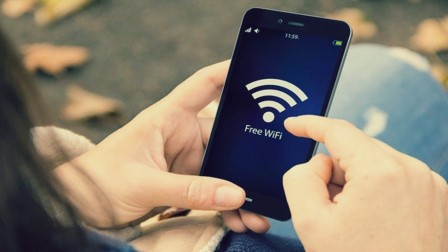In today’s digital age, whether we’re sipping coffee at a local café or waiting for a flight at the airport, the temptation to connect to a public Wi-Fi network is tough to resist. We often perceive public Wi-Fi as the savior, especially if we have no mobile data plan.
However, a burning debate surrounds the safety and security of using public Wi-Fi. While some argue that public networks pose significant risks to our personal information and online presence, others insist that the dangers are — exaggerated.
This post will tackle precisely this problem. We will uncover what is the myth or truth about public Wi-Fi. This way, you will have a comprehensive understanding of the potential risks and precautions needed when navigating the world of public networks.
General Worries about Public Networks
Many people have complaints about free public Wi-Fi, and they may have some validity. Reasons why public Wi-Fi networks have a negative rep include the following:
Personal Information Theft
Without a doubt, hackers’ ability to intercept personal information via devious techniques is a significant cause for concern when using public Wi-Fi. Compared to our private, trusted networks at home or the office, public Wi-Fi hotspots sometimes lack the same level of protection. This way, hackers get a fertile environment to spread malware and lure unsuspecting users to phishing sites where they can steal sensitive information.
Network Spoofing
Network spoofing, in which false Wi-Fi networks are created, is a covert but dangerous form of attack. Cybercriminals can construct fake public networks with names that seem similar to those of existing ones. In that manner, companies may get consumers to connect with them when they aren’t expecting it. When linked, these fake networks may spy on anything done online. The scariest of all is that they can steal essential data like passwords and credit card numbers.
Threats of Interconnectivity
Devices on the same network can talk to each other and exchange data. This is a highly overlooked fact about public networks. When you connect your device to a public Wi-Fi, other people on the same network may be able to share malicious files with you and attack your device.
How to Avoid Dangers of Public Wifi?
There are several steps to guard yourself when connecting to public Wi-Fi. Here are some valuable tips:
- Verify the network: Before connecting to Wi-Fi, do your due diligence and verify the authenticity of the network. You can easily do this by checking the Wi-Fi name of the establishment or the venue. Make sure to avoid connecting to generic or suspiciously named networks, as the bad guys might have created them.
- Use a VPN: Opt in a virtual private network (VPN) because VPN makes sure that the data you send or receive is protected from threats and secured from prying eyes. Many VPN services are available for desktop and mobile devices, so you can use a VPN wherever you are.
- Keep devices updated: Those annoying update notifications are usually equipped with the latest security patches. These patches often include critical security fixes that help protect against vulnerabilities and ensure devices have the latest antivirus and firewall protections. So next time, think again before clicking the “Update Later” button on the client.
- Limit shared information: As a rule of thumb, never enter sensitive information on any website. Sensitive information can be anything from your credit card details or login credentials. If you have no choice but to do so, check whether the website is secure and has an HTTPS connection. Always be cautious when providing personal information, too.
Remember that your personal information can be sold to databases that can send you targeted ads and frustrating campaigns. Later, you will have to remove your information from the internet.
What Happens If My Data is Exposed on Public Wi-Fi?
You must take immediate action if your data is exposed on public Wi-Fi. Here are the consequences of exposed data:
- Identity theft: If a hacker claims your personal information, they can use that information to commit fraudulent activities in your name. This can lead to devastating financial loss for you and might even damage your reputation.
- Compromised accounts: Hackers who access your email or social media accounts can send malicious messages, obtain more personal information, or even impersonate you online. This can result in your friends, family, or close contacts falling victim to phishing scams.
- Privacy violations: By collecting and aggregating the data of numerous people, hackers can sell information on the dark web or use it for targeted advertising. This invasion of privacy can leave you feeling violated and vulnerable, as your personal information is in the hands of malicious actors.
Now that you know what lies behind the curtains of public networks, you can decide whether public Wi-Fi is worth taking the risk.
